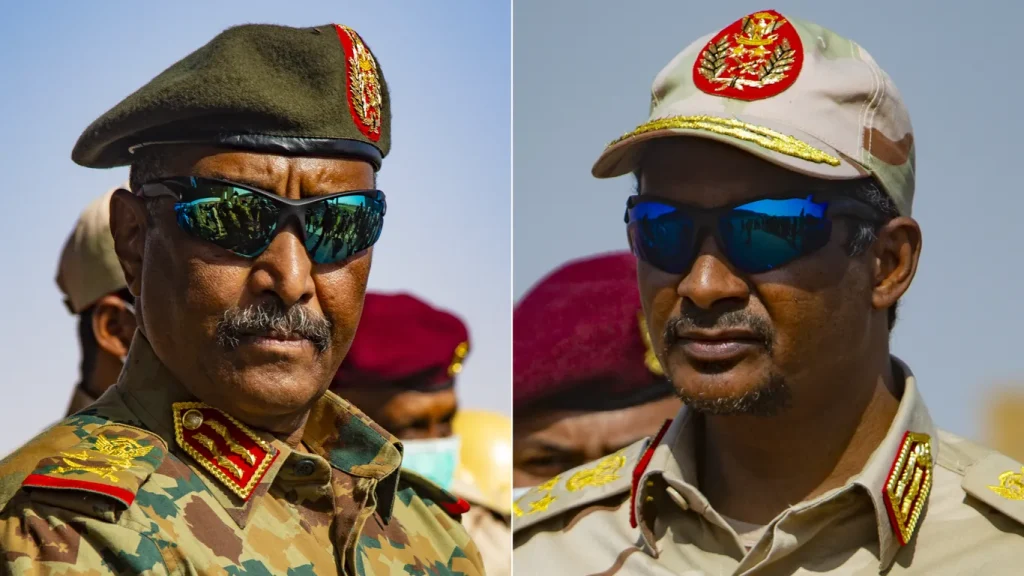High-ranking officials from Sudan’s Army and the paramilitary Rapid Support Forces (RSF) have engaged in a series of clandestine meetings in Bahrain, marking the first direct contact between the conflicting parties in a nine-month-long conflict in Sudan.
Diverging from previous discussions on the Sudanese conflict, the sessions in Manama saw influential representatives from both forces, along with officials from Egypt and the United Arab Emirates—key supporters of the Army and RSF, respectively. This unprecedented gathering aimed to break the impasse that persisted despite multiple efforts by regional powers and East African nations to broker a ceasefire and a political resolution.
The conflict, ignited last April over disagreements regarding the powers of the Army and RSF in the context of an internationally-backed plan for a political transition, has caused extensive damage to Sudan, claiming over 13,000 lives, according to UN estimates. The talks in Manama involved the participation of the United States and Saudi Arabia as well, indicating a broad international interest in finding a resolution.

The discussions revealed a tentative agreement on a set of principles, emphasising the unity of Sudan and its military. Despite no immediate breakthrough, the meetings showcased the ability of external forces, including Egypt, Saudi Arabia, and the UAE, to exert fresh pressure on the conflicting parties, concerned about the country’s potential descent into a state of failure.
The RSF, accused of ethnic cleansing and controlling significant parts of Khartoum and western Sudan, has recently expanded its military presence. Simultaneously, the Army, aiming to reclaim territory in the capital, is recruiting and arming civilians in its controlled areas.
Tensions rose as the RSF chief, General Abdelrahim Dagalo, also known as Hemedti, embarked on a regional tour, making formal appearances with African leaders. The RSF’s recent military advancements, coupled with the Army’s efforts to regain control, highlight the urgency of successful negotiations to prevent further fragmentation of Africa’s third-largest country.
Despite the absence of a conclusive agreement, the international community remains engaged, with the United States expressing readiness to collaborate with regional actors to influence the conflicting parties.
Hemedti also postponed a planned summit with Burhan in Djibouti that regional mediators said both men had agreed to, citing technical issues, even as he flew to other countries.
For his part, in rallies with soldiers this week, Burhan said that the war would continue unless negotiations were able to bring RSF soldiers to justice and return civilians home.


